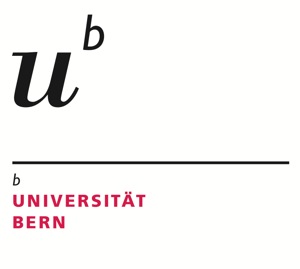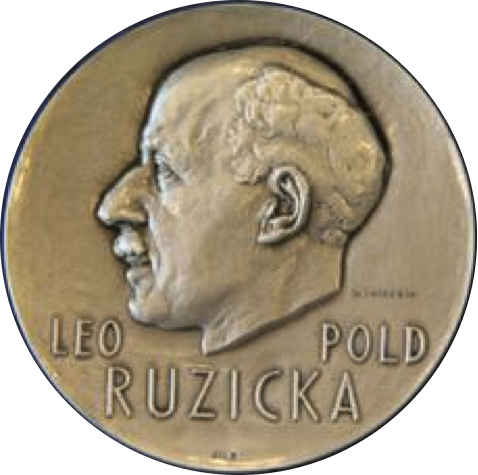Open Position @UniBE: Full Professor in Pharmaceutical Chemistry
 University of Bern Faculty of Science
University of Bern Faculty of Science
The Department of Chemistry and Biochemistry of the University of Bern, Switzerland seeks excellent candidates with an outstanding publication record and an internationally recognized research programme in
Pharmaceutical Chemistry
Applicants should have a strong background in synthetic organic chemistry. The candidates should demonstrate an exceptional potential to develop innovative research programmes in areas such as Target Identification, Elucidation of Molecular Mechanisms of Drug Action, Structure-Activity Relationships or Activity Based Protein Profiling. Furthermore, he/she should be willing to cooperate with research institutions within and outside the University of Bern. The candidate is expected to strongly contribute to the training and education of students in the pharmaceutical sciences.
The University of Bern is an equal opportunity employer and strives to increase the number of women in the faculty. Qualified female researchers are especially encouraged to apply.
The position is to be filled before or by August 1, 2019.
Interested candidates should submit their curriculum vitae, a synopsis of their past, current and planned research (max 5 pages), a list of publications, indicating the 5 most relevant papers, and an outline of their teaching experience as a single PDF file to the Dean’s Office (email: ) and submit the completed online questionnaire (link to be found at http://www.dcb.unibe.ch/jobs). Deadline for applications is May 15, 2018.
Informal inquiries can be addressed to Prof. Robert Häner, phone +41 (0) 31 631 43 82, email: or Prof. Jean-Louis Reymond, phone +41 (0) 31 631 43 25, email:
University of Bern, Faculty of Science, Dean's Office, Sidlerstrasse 5, 3012 Bern, Switzerland,
David Spichiger, SCS
19.03.2018
Swiss Summer School 2018 in Chemical Biology: registration is open

August 19 - 23, 2018
Place: Eurotel Victoria, Villars sur Ollon, Switzerland
Speakers:
- Prof. Anna K. H. Hirsch (Germany)
- Prof. Dimitrios Stamou (Denmark)
- Prof. Huib Ovaa (The Netherlands)
- Prof. Jörn Piel, (Switzerland)
- Prof. Karl Gademann (Switzerland)
- Prof. Manfred Jung (Germany)
- Prof. Rudi Fasan (USA)
- Prof. Seung Bum Park (Korea)
Deadlines:
All PhD students and postdocs are encouraged to participate actively in the summer school by presenting their research. Two poster sessions and short oral presentation slots (15 min) will be available.
- March 15, 2018: Summer school registration and abstract submission opening
- July 1, 2018: Deadline for electronical registration through this website
- July 1, 2018: Abstract submission deadline
- July 20, 2018: Notification of acceptance and type of contribution (poster, oral communication)
Scientific Committee:
- Jean-Louis Reymond (University of Bern)
- Beat Fierz (EPFL)
- Martin Lochner (University of Bern)
- Christian Heinis (EPFL)
Website:
David Spichiger, SCS
16.03.2018
ISRUM 2018, registration open
International Symposium on Reactive Intermediates and Unusual Molecules (ISRIUM) 2018
July 15-20, 2018
Congressi Stefano Franscini (CSF), Monte Verità, Ascona
The conference is one in a series of meetings of chemists who share an interest in understanding the mechanisms by which chemical transformations take place, and identify the reactive intermediates that occur in the course of these transformations. The success of this field since the 1950s had led to the incorporation of mechanistic thinking into the underlying vocabulary, discourse, and teaching of chemistry. ISRIUM 2018 seeks to bring together on Monte Verità practitioners from different fields in chemistry and adjoining disciplines ranging from molecular biology to materials science, who share a mechanistic interest.
The conference will bring together about 100 scientists from all over the world for a six-day meeting, offering lectures from a distinguished group of invited speakers. Poster sessions and short presentations interspersed throughout the week aimed at giving most of the participants the opportunity to present their work in an environment encouraging informal exchange of ideas.
Website: http://www.isrium2018.ethz.ch
Deadline for submission of abstracts is Sunday, April 1, 2018.
You can submit your abstract as soon as you registered to ISRIUM 2018.
David Spichiger, SCS
26.02.2018
Wanted: Young scientists with contributions to solve global challenges
Young scientists will have the opportunity to present their research in Brussels on 17 April 2018. The offer is aimed at doctoral students and postdocs (max. 3 years from doctorate) from all disciplines and whose research has the potential to contribute to solving global challenges. Wanted are persons who can explain the importance of their research in five minutes and who are not afraid to communicate with political decision-makers from Europe.
Important decisions for the future of European research and innovation policy will be taken next year. For example, under current discussion is the significance of research and innovation to address global challenges in the context of the Sustainable Development Goals (SDGs). However, young researchers are rarely given the opportunity to speak out in these political debates. SwissCore, the Swiss contact office for European research, innovation and education in Brussels, will therefore offer them a platform at its next annual event.
Proposals may be submitted until 30 January 2018. Details about the submission process is available on the website of the SNF.
David Spichiger, SCS
20.12.2017
Ruzicka-Prize 2017: call for nominations

The Ruzicka-Prize is awarded each year to a young scientist for her/his outstanding, published contribution in the field of chemistry, achieved either in Switzerland or by a Swiss citizen abroad.
Proposals for candidates (age limit 40 years) may be submitted until September 15, 2017 (date of receipt) to the
Vice-President Research and Corporate Relations
Prof. Dr. Detlef Günther
ETH Zürich / HG F 57
Rämistrasse 101
CH-8092 Zürich
More details on:
https://www.chab.ethz.ch/outreach/oeffentlichkeitsarbeit/ruzicka-preis.html
David Spichiger, SCS
21.06.2017
Page 254 of 299

